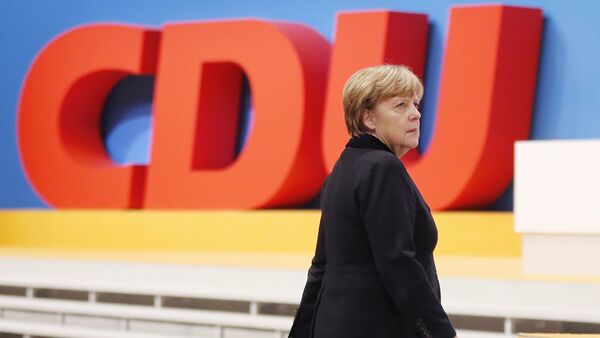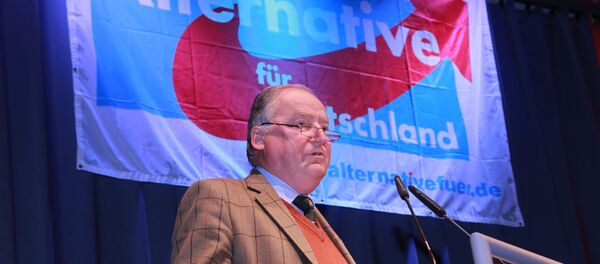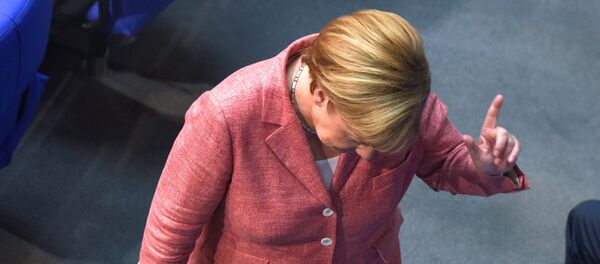MOSCOW (Sputnik) — During the September state parliamentary election in Berlin, the AfD won 25 seats, becoming the fifth in popularity among voters. The grand coalition involving three major parties was considered a major option, while AfD was not invited to join government.
"Of course I am not [in favor of the coalition]. One can think about coalitions with someone else if one has a certain strength and the opportunity to talk with a partner on an equal footing… Such action would be a mistake, we know that from the history of the Federal Republic of Germany, when the small parties, who joined the CDU too early, lost their political importance and now appear in the history books as booknotes only," Alexander Gauland said.
AfD was founded in February 2013 to protest against Germany’s handling of the Eurozone crisis, in particular the decision to bail out Greece, but later on, following the migrants crisis in Europe, the party focused more on providing harsh opposition to Merkel's liberal refugee policy and became well-known for its anti-Islam stance.
Despite accusations of xenophobia, AfD has been making gains at local elections across Germany, beating Merkel’s party CDU into third place in her home state of Mecklenburg-Western Pomerania.




